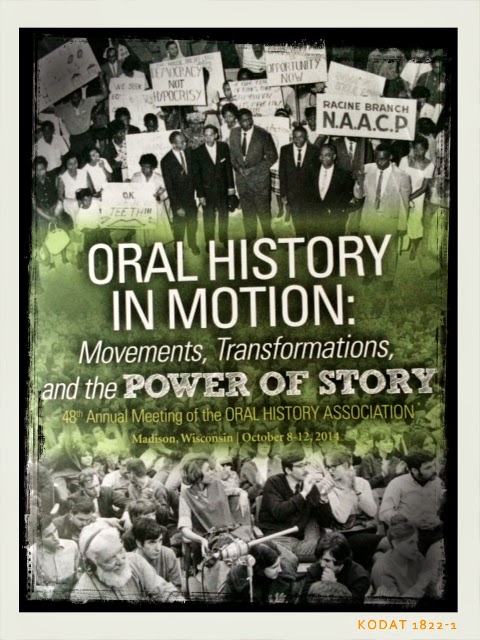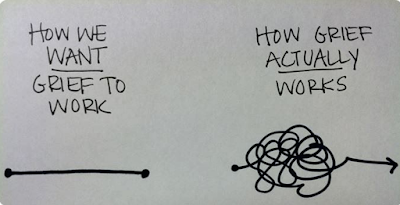Depression Under the Sofa: Trauma, Post-Memory and Antidepressants in Northern Ireland
 |
and a half times more than in England, it turns out that the Northern Irish are being medicated to address anxiety and
depression more often than in almost any other region in the world.
Journalists have been quick to make knee-jerk observations about use by patients who are too young to be directly affected by the Troubles. "The disparity is so huge that it warrants closer examination," said Steven McCaffrey of The Detail.
The insinuation in both The Irish Times and the BBC is that the Health Service in Northern Ireland is over-prescribing.
Health care professionals in Northern Ireland have noted for several years that patients who come to see a professional about mental health concerns tend to expect a prescription and are averse to alternative therapies. There are good reasons for this. A society that functioned on silences and secrets for over forty years might not embrace talking about and through complicated emotions. A conservative society with a large rural population may not find holistic remedies or eastern mind-body-spirit practices welcoming. Prozac is far less invasive than a therapist, far less sweaty and well, compromising, than yoga.
Those issues notwithstanding, I see some good reasons antidepressant use may be up that have nothing to do with patients opting out of other therapies in the quest for mental and emotional wellbeing. There may simply be more people seeking help. Why? Well, here's my take:
- Post-memory
- An acknowledgment of the psychological costs of dealing with the conflict and post 'extreme-life' funk
- A shift away from self-medication
 |
| Haunting the Present: the 'In Their Footsteps' traveling exhibit of shoes worn by victims of the Troubles |
As Tom McEneaney of Northern Ireland's Aware Defeat Depression observed, depression in Northern Ireland today is "sitting under the sofa," quiet but very much present.
A study headed by Orla Muldoon, published in 2007, found that about 10% of 3000 Northern Irish residents who responded to a completely random telephone poll met the criteria for a PTSD diagnosis. When you consider issues of class and regional intensities (urban and border areas particularly,) then the rates of PTSD in particularly-affected regions is probably 25% or higher.
That is a lot of trauma, people.
So, why the need for medication? And why now? These are my thoughts, not as a mental health expert, but as an historian of memory in Northern Ireland:
Post-memory. Scholars of traumatic memory have done a good job helping us to understand how grief, anxiety and other effects of trauma are passed on generationally. I've written before about the performances of memory; those raised societies in conflict perform memory like champs. Derry's Seamus Deane, author of Reading in the Dark, provides a masterful examination of the emotional and psychological burdens parents bequeath to their children as a result of conflict, violence and the price of social cohesion in divided places. Put simply, if your parents, aunts and uncles or grandparents experienced trauma, they may very well have passed some of it on to you. Your family life, neighborhood, social network and worldview were shaped by it. It was always there in subtle ways. If they struggled, you struggled alongside them. And it was probably very rarely, if ever, acknowledged. Mental health costs? Massive.
Acknowledging the myriad costs of the Troubles. One of the really interesting findings of the 2007 study was that many of those with symptoms suggestive of PTSD did not consider themselves victims of the Troubles. As violence subsided and Northern Ireland as a whole grappled with the legacies of the conflict, many people probably allowed themselves to face the ways they were affected by pervasive uncertainties, suspicions and the constant beat of an accusatory drum. Those who pursued peace allowed themselves to feel exhausted. Those who held marriages, families, households and neighborhoods together against threats real and perceived let the cracks appear in their own armor.
Like the funk that follows a particularly vitriolic argument or the shaky hands that last hours after a good old bout of road rage, even relatively "small" violations leave aftershocks. The broader public discussion about the costs of the Troubles made the cracks visible and made those who hadn't lost loved ones or limbs come to terms with the legitimacy of their own losses. From my own experiences in Derry, it is clear to me that the wider, more pervasive effects of the Troubles, long kept carefully contained, surfaced around 2007. As one woman described it, it was like the whole society loosened the string on their track suit bottoms at the same time.
And then there is post 'extreme-life' funk. It is the one that descends in the months and years after particularly intense experiences. Extreme life is dramatic and in high definition. Issues seem clear, as do consequences - at least from the outside. While I think the early years of the Troubles were much more in keeping with this notion, and then only in some places, and then only for some people --- there could still be vestiges of extreme life hangover. For many ordinary people, the Troubles are over and nothing much came of them. It was, for many, a waste of time, money, lives. For others, it was the most vibrant chapter of their life-story, the biggest if not the best. They starred in a film a lot of people wanted to watch, even if it was with a certain morbid fascination. Now, life is ordinary. There is little to distract, little to focus energy and attention on besides one's own cares, concerns, worries. Crises of faith and purpose crop up.
A shift away from self-medication. It is possible that for many who cured insomnia with booze or anxiety with fags, the broader public coming-to-terms with the conflict's costs was an awakening. Upon acknowledging their own right to pain and grief -- for possibilities that the Troubles obscured, for the ways it warped relationships and disfigured the potential of people, of places, of futures -- it is just possible that they went to the doctor and asked for something to take the edge off.
***
I could be wrong. It could be fraud. Or rampant over-prescribing. Or another form of avoidance. It could also be that the economy has flatlined, all the money that bolstered the peace process is gone, and people are depressed for ordinary, mundane reasons. But from where I sit, as someone who thinks about memory and violence, the increase in prescriptions for antidepressants in post-conflict Northern Ireland makes all the sense in the world. As the Northern Ireland Executive and the British Government grapple with balancing budgets, this study should be a call, loud and clear, to continue to address the legacies of the conflict in authentic, serious and sustained ways. 







Really informative and interesting, Margo. Thanks for sharing.
ReplyDeleteThanks, Brad! The snarky "the Troubles can't account for this" reporting got to be a little too much.
DeleteWow, I am a nutritionist here in Coleraine and was simply looking into depression statistics in NI when I came across your article. Really makes sense! Helped give me a bit more context and understanding into the culture. I am an American, but my husband is from here so I have been living here from 2010. Your article gave me some important insight into understanding what feels like an underlying depression. I am really interested in using nutrition and lifestyle to help people suffering from depression, and your article was helpful for me to see potential underlying causes of depression in individuals that might need to be addressed. Thank you!
ReplyDelete